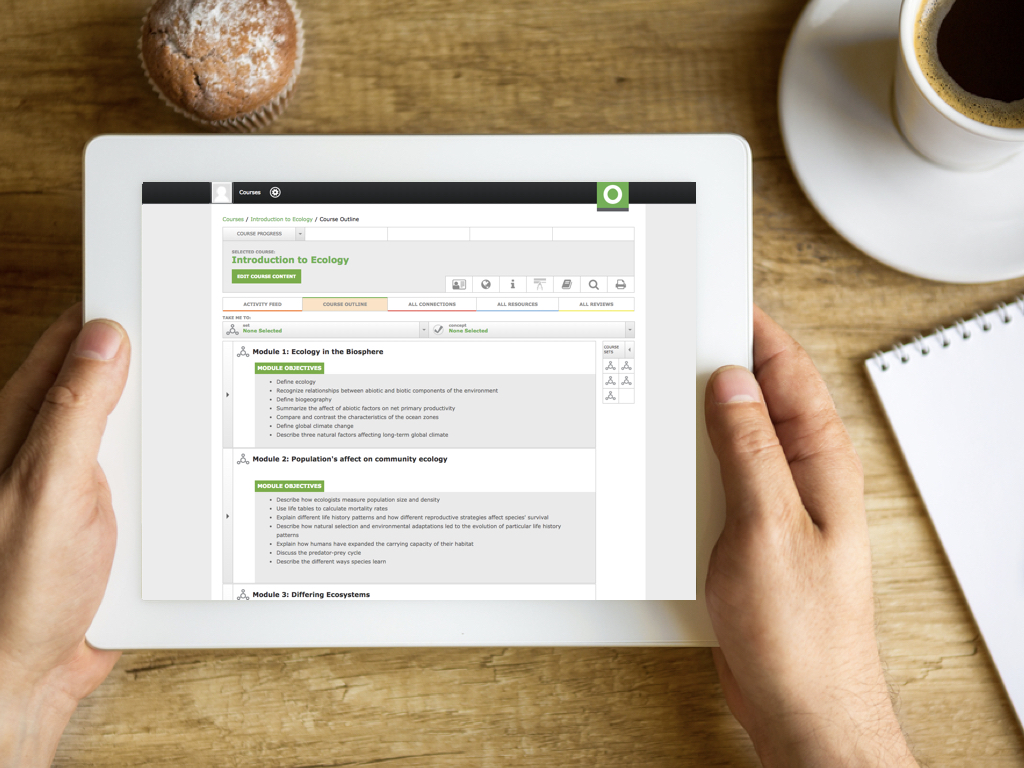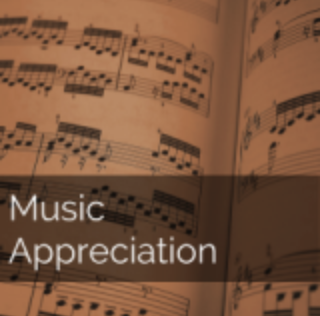
Music Appreciation
The comprehensive contents from this book, combined with Odigia’s Teaching and Learning Tools have everything you need to engage, collaborate, track and assess your students.
This course includes:

practice questions
Helping Teachers Do What They Do Best: Teach

Customize
Use our courses as is or easily customize them to fit your teaching style and the needs of your students. You can add your favorite resources, hide and show our existing content and pre-built assessments, or make them your own. Everything your students need, in one place!

Engage and Collaborate
Odigia combines learning materials, discussions, and tools to create a familiar social experience for students allowing you to easily connect and redirect students attention.

Track
See how much time students are spending on different areas of the course, which areas are creating the most amount of engagement and identify topics the students are struggling with. Flag and provide feedback on assignments to proactively meet individual students' needs.

Assess
Game theory allows students to monitor their progress visually and motivates them to stay on track. Students can see exactly what activities they need to complete, which ones have been flagged and compare their progress against the overall class.
Art Appreciation Course Outline
Melody, Harmony, and Scales
Rhythm and Meter
- Time Signature
- Duration of Notes and Rests
- Rhythm and Meter
- Measures and Time Signatures
- Conducting
Textures and Forms
- Terms that Describe Texture
- Musical Form
- Phrase and Period
- Motive (Motif)
- Theme and Variations
Tempo and Dynamics
- Tempo Measurement
- Tempo Markings and Changes
- Dynamics and Dynamic Changes
Classification of Human Voices
- Vocal Types and Ranges
- Soprano
- Mezzo-Soprano
- Contralto
- Countertenor
- Tenor
- Baritone
- Bass
Musical Instrument Families
- Classification of Musical Instruments
- Orchestral Instruments
- Strings
- Woodwinds
- Brass
- Percussion
- More Percussion
- Keyboards
Musical Ensembles, Attending Concerts
- Chamber Music
- Symphony Orchestras
- Bands
- Concert Etiquette
- Concert Attendance Activity
The Middle Ages
- Overview of Medieval Music
- Medieval Music Genres
- Medieval Composers
- Pythagoras
- Neumes
The Renaissance
- The Renaissance
- Renaissance Music
- Early, Middle, and Late Renaissance Music
- Instruments Used in Renaissance Music
The Baroque Era, J.S. Bach
- The Baroque Era
- Art, Architecture, and Theater in the Baroque Era
- Music in the Baroque Era
- The Doctrine of Affections
- J.S. Bach: His Works
Baroque Opera, Cantata, Oratorio, G.F. Handel
- Opera
- Operatic Terminology
- Cantata
- Oratorio
- G.F. Handel
Baroque Instrumental Music, A. Vivaldi
- Overview of Baroque Instrumental Music
- Concerto
- Suite
- Fugue
- Sonata
- Themes and Variations
- A. Vivaldi: His Life and Legacy
- A. Vivaldi: His Works
The Classical Era, Classical Forms and Symphony, J. Haydn
- Overview of the Classical Era of Music
- Classical Music Timeline
- The Sonata Allegro Form
- The Classical Symphony
- The Classical Orchestra
- F.J. Haydn
Classical Opera and Choral Music, W.A. Mozart
- Overview of Classical Opera
- Italian Opera
- German Opera
- French Opera
- English Opera
- Classical Choral Forms
- W.A. Mozart: His Life and Legacy
Classical Instrumental and Chamber Music, L. Beethoven
- Review of Classical Era Music
- String Quartet
- The Classical Concerto
- The Classical Sonata
- Ludwig van Beethoven
Romantic Period
- Romantic Music
- Nationalism
- Musical Nationalism
- Franz Schubert: Biography
- Franz Schubert: Der Erlkönig
- Hector Berlioz: Biography
- Mendelssohn: Biography
- Chopin: Biography
- Schumann: Biography
- Brahms: Biography
- Dvořák: Biography
Romantic Period: The Russian Handful
- The Russian Handful
- Mussorgsky: Biography
- Tchaikovsky: Biography
- Wagner: Biography
- Strauss: Biography
- Mahler: Biography
20th Century
- New Directions in 20th Century Classical Music
- Stravinsky: Biography
- Stravinsky: Rite of Spring
- Debussy: Biography
- Ives: Biography
- Copland: Biography
- Copland: Rodeo
About the book
Music Appreciation

Music Appreciation is an exposition of the philosophy, principles, and materials of music from the Baroque Period to contemporary period with illustrative examples from the Baroque Period, Classical Period, Romantic Period, Contemporary Classical Music and Popular Music. The course is designed to give the student an appreciation of music by exposing them to many musical styles, composers, historical trends, as well as increasing their aural, verbal and writing skills in describing music.
About the authors:
Senior Contributing Authors
Natalia Kuznetsova, Tidewater Community College
